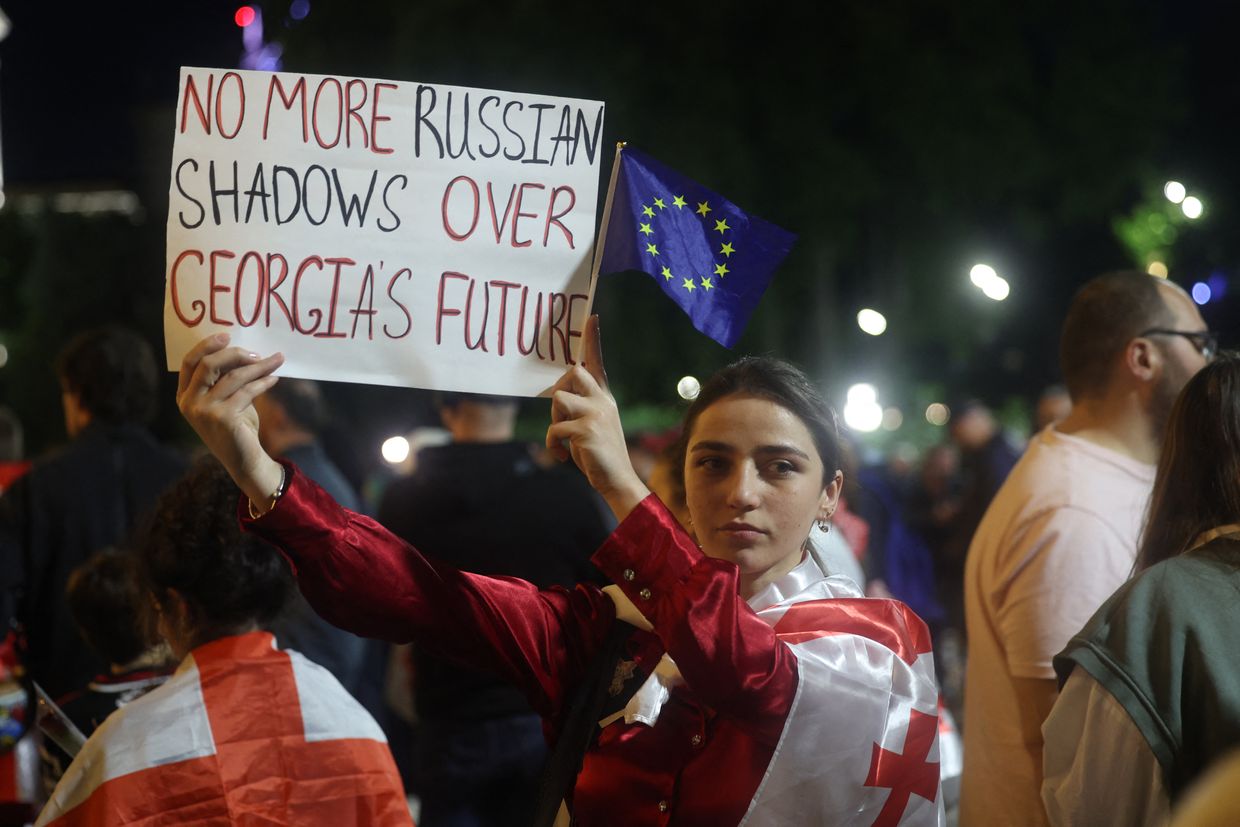According to Politico, the European Union is considering ending Georgia’s visa-free access to the bloc due to concerns about democratic backsliding under the ruling Georgian Dream party. An unnamed spokesperson for the European Commission stated that “all options are on the table” if Georgia does not reverse its trend towards authoritarianism, including the possibility of temporarily suspending the visa liberalization scheme. This comes after the Georgian Dream party passed a controversial foreign agents law, which requires organizations that receive foreign funding to be labeled as “foreign agents” and has been compared to repressive Russian legislation.
The passage of this law and the subsequent crackdown on protesters has led to a freeze in aid and sanctions from Georgia’s traditional Western partners, the EU and the U.S. The proposal to end Georgia’s visa-free access to the EU, which was first granted in 2017, is the latest development in the deteriorating relationship between Georgia and the West. The European Commission spokesperson stated that Georgia was required to meet specific benchmarks, including protecting fundamental rights and preventing discrimination, as part of the EU-Georgia visa liberalization dialogue and Action Plan.
Rumors of the potential end to the visa-free regime have sparked a response from Georgian Prime Minister Irakli Kobakhidze, who called it a “cheap blackmail attempt.” He also claimed that it would not affect the upcoming parliamentary elections in October, where the ruling Georgian Dream party is seeking a fourth term. However, the previous day, Georgia’s parliament passed a package of anti-LGBTQ legislation, which has been condemned by the country’s Western allies. This legislation includes a ban on gender transition, adoption by same-sex couples, and the promotion of LGBTQ relationships.
The passing of these bills has raised concerns about Georgia’s trajectory and its impact on the country’s Euro-Atlantic goals. These concerns were further heightened when Kesaria Abramidze, a prominent transgender public figure, was murdered the following day. Her boyfriend, who is suspected in her killing, has been arrested by the police. In response to the murder, the human rights NGO Social Justice Center stated that there is a direct correlation between the use of hate speech in politics and hate crimes.
Read More @ kyivindependent.com













